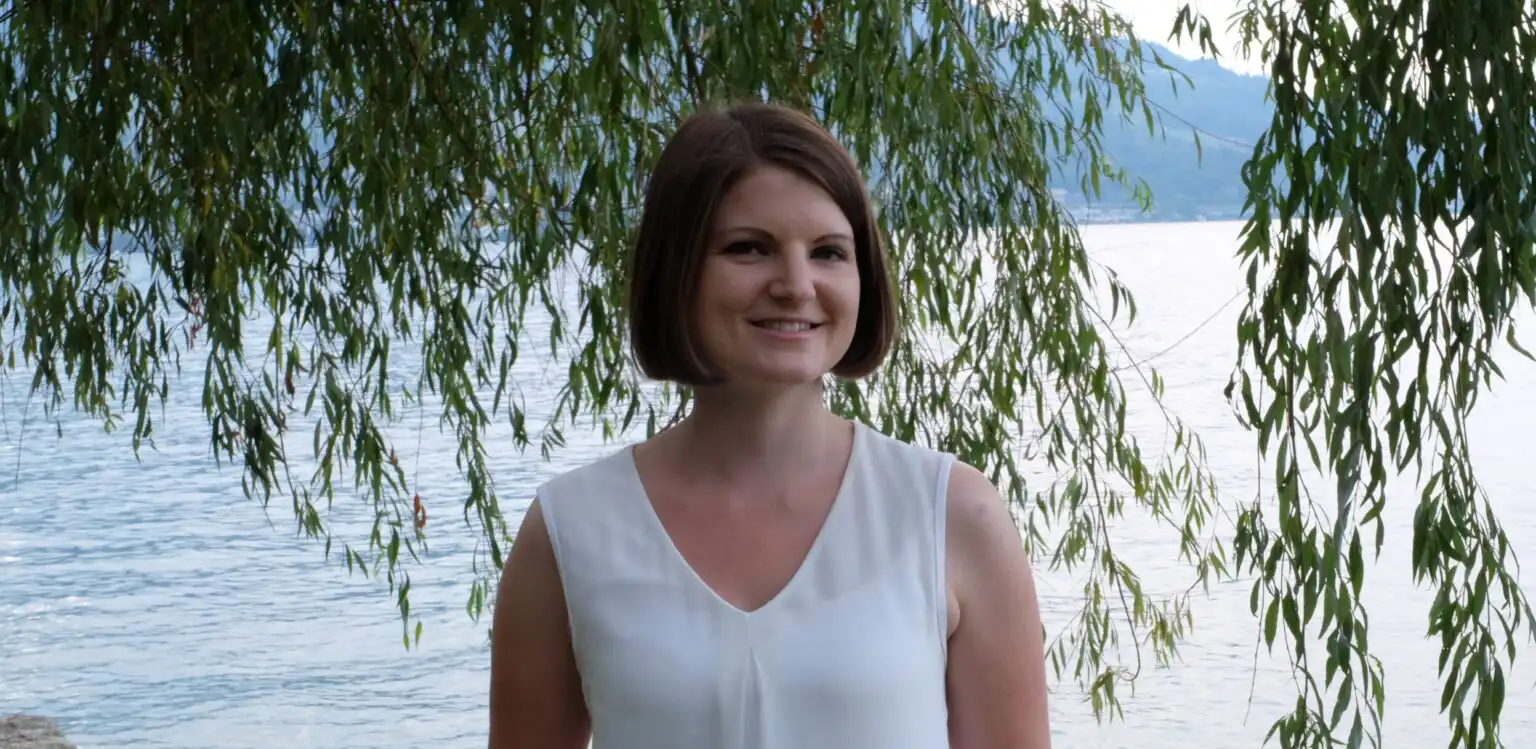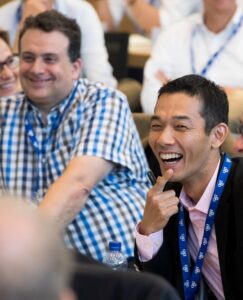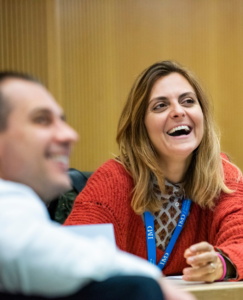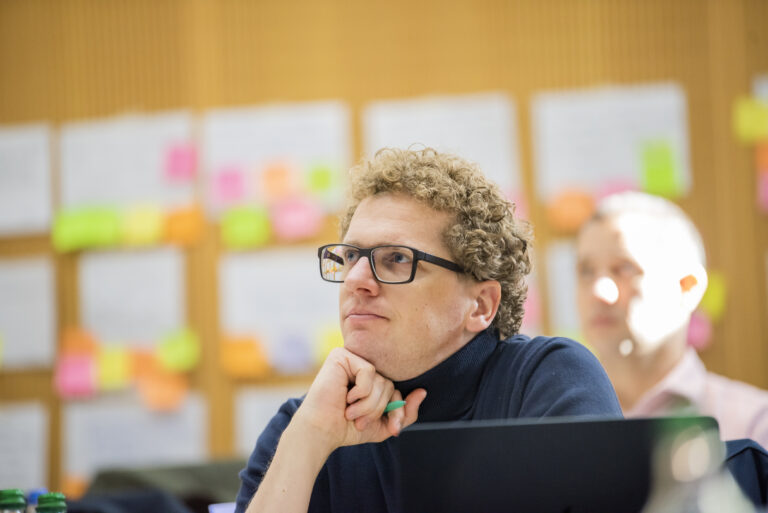
Denise Weger has been an environmental crusader and advocate for social equality for as long as she can remember.
“I was brought up in a family where we have always tried to be sustainable, including the way we eat, and making sure that we’re not impacting the environment too much. It’s been ‘laid in my crib’, so to speak,” she shared.
“I knew there was an imbalance in the system and felt like I needed to contribute and bring back the balance so that the economy can serve society again and preserve the planet.”
It’s no wonder that this sense of environmental stewardship has spilled over into her career. In 2012, after graduating from the University of St Gallen with a Master’s in international affairs & governance, Weger joined Swiss pharmaceutical company Novartis where she gained a solid grounding in sustainable business operations.
As her career progressed, her role expanded to environmental, social, and governance strategy development and implementation.
Overcoming “business blindness”
At Novartis, it seemed like Weger had firmly secured her career path in the pharmaceutical industry. But after 10 years at the firm, Weger was eager to broaden her horizons.
“You get “business blindness” after spending a certain amount of time in the company. I felt like I needed to do something else to expand my horizons and leave that bubble,” she explained.
“I was wondering about what I wanted to do next,” she said. “I came to a point where all the ‘easy’ questions had been answered but I didn’t think I could dig deeper. That’s why I chose the EMBA to get me to a depth where I could challenge the ‘classical’ functions in a business.”


An EMBA, she realized, could also prepare her for leadership development and cultivate her critical leadership skills. “I felt like my leadership still needed to develop in a more targeted way since I’m consistently the ‘challenger’ of things. I needed to [learn how to] figure things out and reflect on them more deeply to understand what is happening around me – and [learn to overcome any] objections to the ideas I wanted to implement.”
Weger went ahead and applied for an EMBA at IMD. She was soon accepted into the program and awarded a sustainability leader scholarship from the IMD Scholarship Foundation which is funded by donors and alumni.
“The Foundation for Business Leadership and Advanced Management Concepts stages are basically programs in themselves, which is valuable,” she said. “The structure of the EMBA also provides me with some form of financial flexibility. If I had not been able to manage the program fees, I could have stopped and not ended up with nothing due to the modular structure, which makes it so much easier to pull through to the end.”
As the first person in her family who has had the opportunity to receive a postgraduate education, Weger takes pride in being financially self-sufficient.
“Over the years, I held down jobs while studying,” she revealed. “These jobs taught me a lot about how to make yourself valuable within a construct, the underlying effort needed to get projects going, and how to manage resources in strenuous situations.”
A validating experience
A valuable takeaway from the program, Weger highlighted, is the validation she receives when engaging with her mentors.
“For me, it is the confirmation that I am on the right track, having this sounding board beyond my community,” she explained. “When you’ve been in a space [for some time], you start seeing it with rose-tinted glasses. So it helps that my strategy and finance professors talk about things that are ‘coming’, which helped me to see that I am on the right path.”

She also cited the example of an industry trend she had observed, which was validated by the case studies at IMD. “I had highlighted to my ex-colleagues at Novartis that pharmaceutical companies are probably not going to be only competing against each other in the future. They’re going to be up against [companies such as] L’Oréal or even Nestlé, which are all heading into the health space.”
The EMBA workshops with international faculty and classmates also serve as fertile ground for ideation. “We are shown some interesting real-world examples of companies where new developments are taking place,” she said.
Challenges of sustainability
By late 2022, Weger switched companies and landed a new job as the first head of corporate sustainability at Swiss health insurance company, CSS Insurance, where she oversees the company’s sustainability framework and navigates compliance issues on this front.
“We try to understand how to create social value through our products so we can manage it more proactively and strategically, and leverage this as a competitive advantage.”
In today’s business paradigm where corporate climate responsibility has become the new normal, companies are increasingly scrutinized over their impact on society, people, and the environment.
“The change in expectations across all stakeholders is noticeable and will only intensify,” she said. “Especially when you look at the talent side; talents are looking for companies that are systematically and actively managing that [sustainability aspect]. So that is the biggest and the hardest change… The workforce will be demanding that in the future.”
Weger thinks this will put companies under increased pressure to adopt more sustainable business practices. “If you don’t transform your business to minimize its harm to the environment and increase social impact, your business is not going to be viable,” she said.
Weger added that the journey to net zero first needs to be addressed by a mindset shift led by top management.
“The most difficult piece [of the puzzle] is the mindset change”
She said “You cannot have sustainability for free. It’s not going to work. It’s your next S curve and you need to invest in it. And the returns are not always obvious. That realization needs to happen with the executive team of the company and the board of directors. That is an essential part of [any company] to [achieving] long-term sustainability.”
At the same time, she concluded, companies need to integrate sustainability into their overall business strategy to make good on their sustainability mission. “If you don’t include [sustainability] in the company strategy, the organization does not become sustainable in the end. Sustainability may be a nice pet project on the side which may satisfy some people, but it doesn’t transform the company. If you want to transform the company to become truly sustainable, sustainability needs to sit in the strategy department.”


